A Modern Farmer’s Guide to the 2020 Democratic Primaries
Where the candidates stand on trade, climate, farming and food.
A Modern Farmer’s Guide to the 2020 Democratic Primaries
Where the candidates stand on trade, climate, farming and food.

The Iowa caucuses will take place on Feb. 3, 2020. hafakot/Shutterstock
With less than six months until the Iowa Democratic caucuses, a small army of candidates is still vying for the chance to face off against President Donald Trump in 2020.
In order to help you navigate where some of them stand on agricultural issues, we’ll be compiling promises made by the top candidates (those who cracked 1 percent in the average of the latest national polls on RealClearPolitics).
We’ll update our guide as the candidates continue to roll out their platforms. Please let us know if we’ve missed anything by sending a note to [email protected].
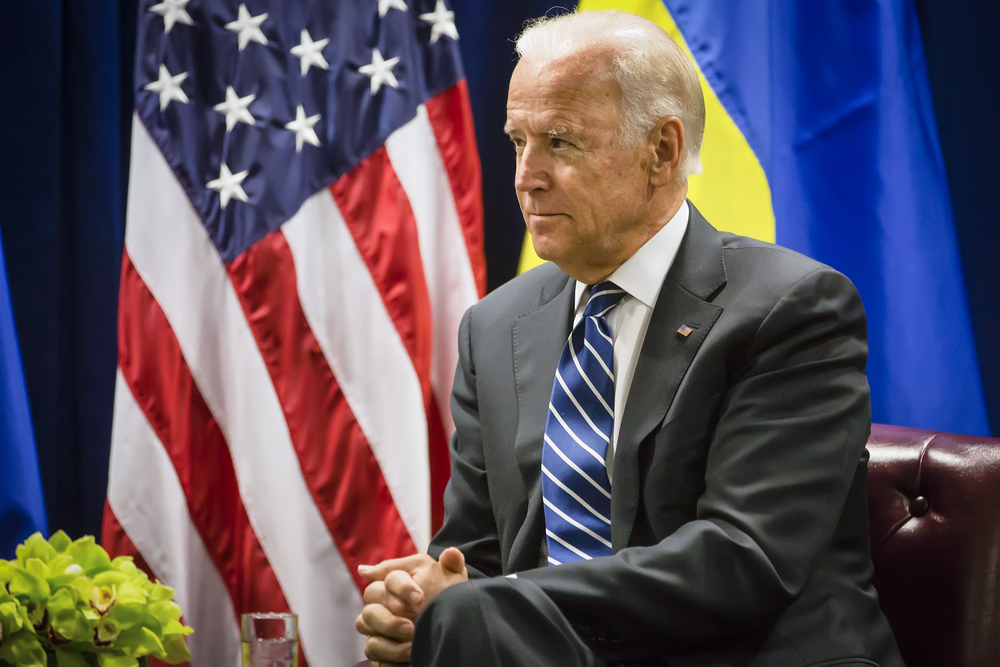
Biden has pledged to strengthen the country’s agricultural sector by “pursuing a trade policy that works for American farmers.” He says this would involve standing up “to China by working with our allies to negotiate from the strongest possible position.”
Biden has promised to expand a microloan program for new farmers, doubling the maximum loan amount to $100,000.
Some of his other promises include:
-Increasing funding to the Department of Agriculture’s farm ownership and operating loans.
-Working with small and mid-sized farms to develop regional food systems.
-Reinvesting in Sustainable Agriculture Research and Education Program and the National Institute of Food and Agriculture to bolster agricultural research.
-Ensuring the agricultural industry achieves net-zero emissions by expanding the Conservation Stewardship Program.
-Strengthening antitrust enforcement to protect small and mid-sized farms.
-Expanding bio-based manufacturing through federal funding.
-Investing in research to develop biofuels.
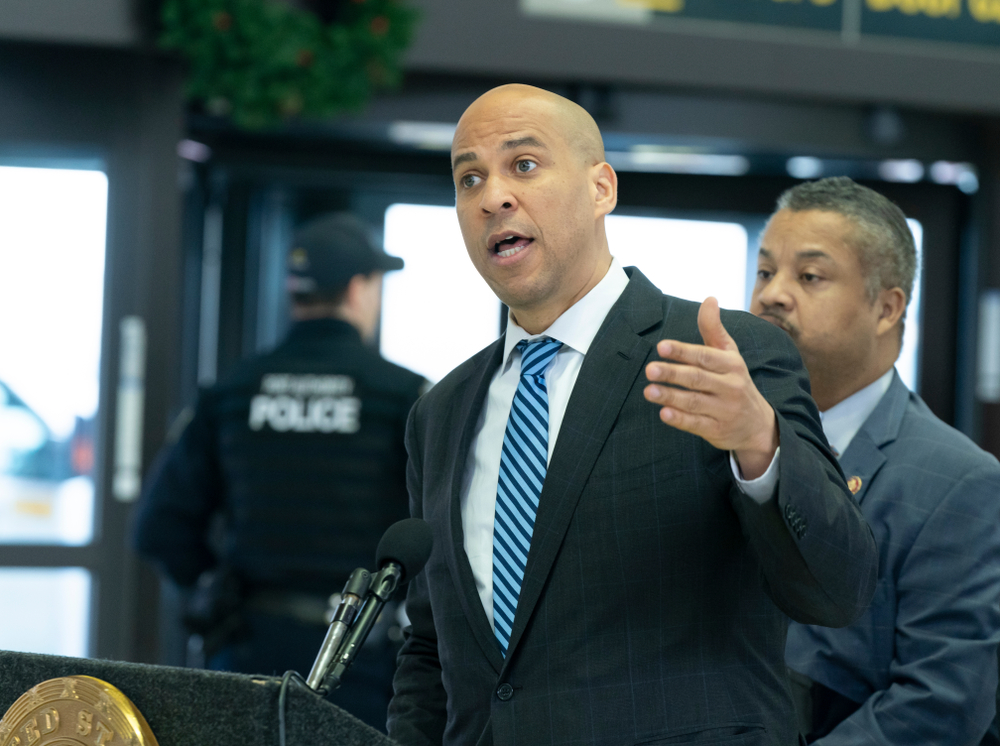
Booker has called for a moratorium on big agribusiness mergers (through the Food and Agribusiness Merger Moratorium and Antitrust Review Act) while Congress updates antitrust law. He has also pledged better enforcement of those laws.
Booker plans to introduce the Climate Stewardship Act this fall. This bill would increase funding for existing programs that provide incentives to farmers for using regenerative methods like cover crops.
The New Jersey senator promised at the beginning of September that he would devote $100 billion by 2030 towards making farms more climate resilient as part of his $3-trillion plan to tackle climate change.
Booker was also a co-sponsor on the Green New Deal.
(Booker has been a vegetarian since the 1990s and became a vegan in 2014.)
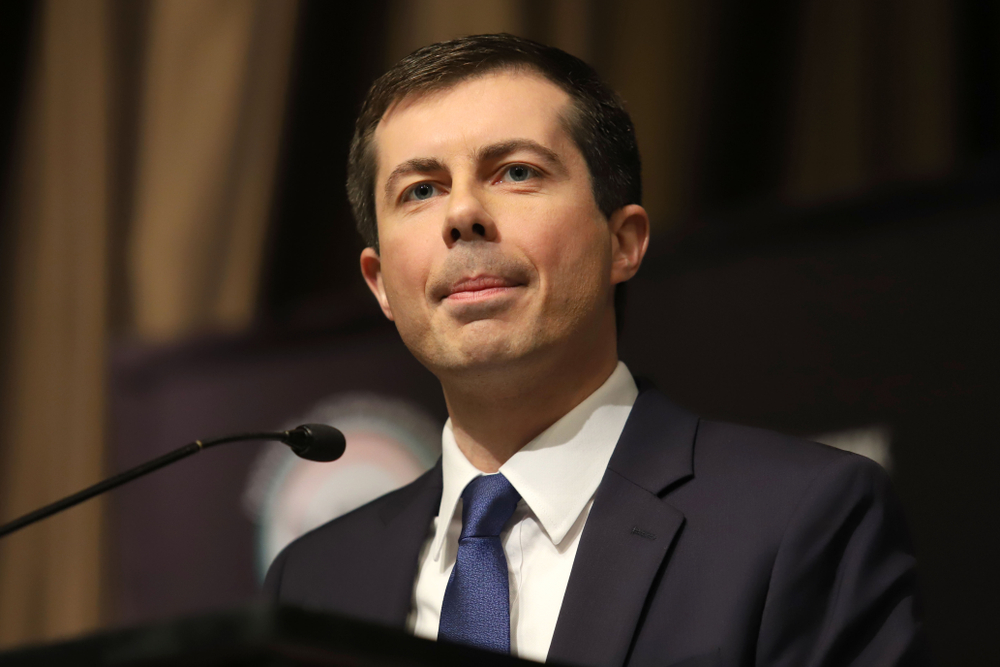
Buttigieg has promised to revamp the enforcement of antitrust laws by doubling funding for it, requiring the Department of Justice to review all big mergers, and by launching investigations into the seed market’s recent mergers. He also said he will amend patent statutes to protect the right of farmers to replant seeds grown on their own land.
Buttigieg has promised to invest nearly $50 billion over 10 years in research to develop new innovations in soil technology, food safety and other areas.
Some of his other pledges include:
–Expanding programs that incentivize farmers to farm sustainably such as the Environmental Quality Incentives Program and the Conservations Stewardship Program, and to reduce administrative barriers to them.
-Supporting biofuels supporting the Renewable Fuels Standard “as written.”
-Expanding worker protections in federal employment and labor laws for farm workers.
-Launching a “Rural Opportunity Center” to streamline grant processes in rural communities.
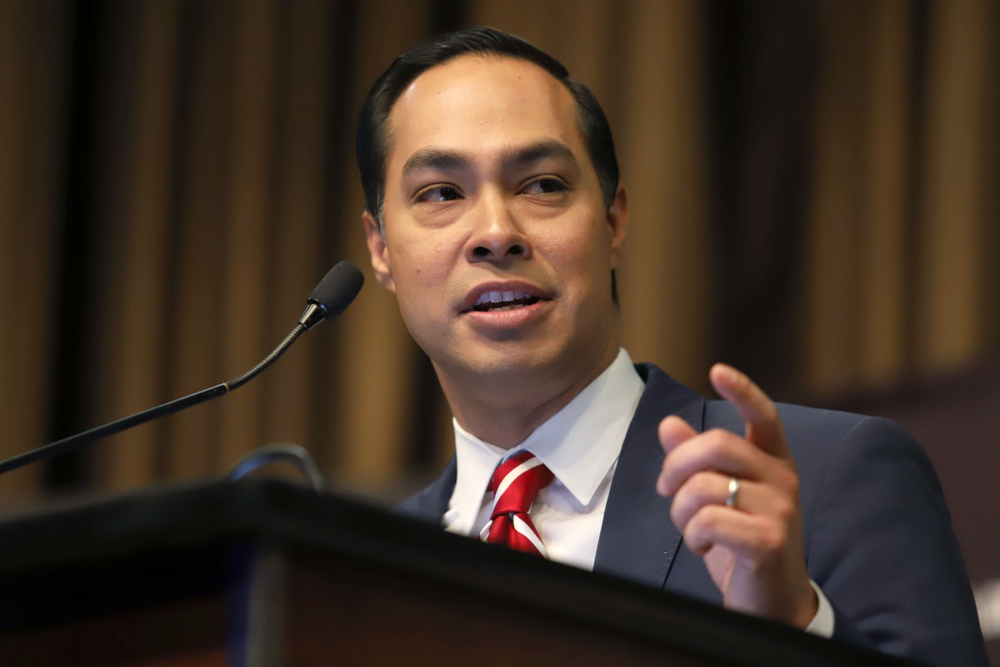
Former Secretary of Housing and Urban Development Julián Castro
This summer, Castro announced an ambitious animal rights plan he says would raise animal welfare standards in factory farms. He has pledged to establish minimum space standards for livestock and poultry and to support funding for farms who participate in independent animal welfare certification programs.
Castro said he would oppose legislative efforts by certain state governments that have silenced whistleblowers.
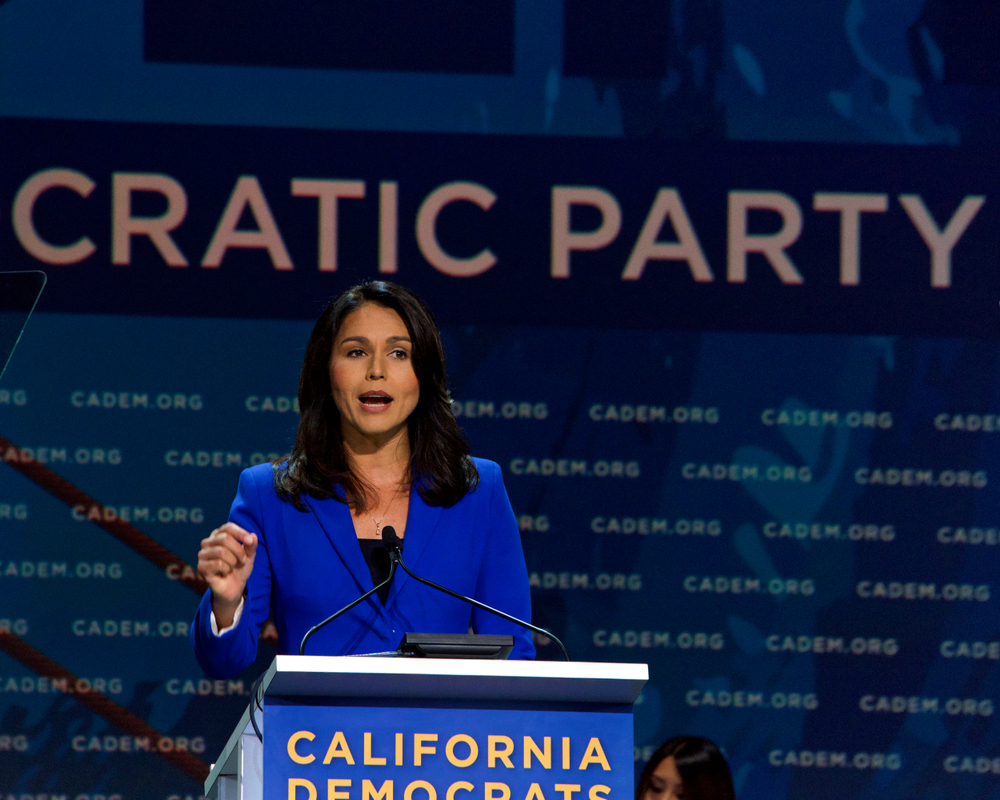
Rep. Tulsi Gabbard
Gabbard has made food self-sufficiency one of her ag priorities. She has voiced support for building food aggregation and distribution hubs as solutions. She also supports building permanent facilities to house farmers markets, incubator farms and farm-to-school programs.
In 2017, Food Policy Action recognized Tulsi, who is a vegetarian, as a top advocate for food policy.
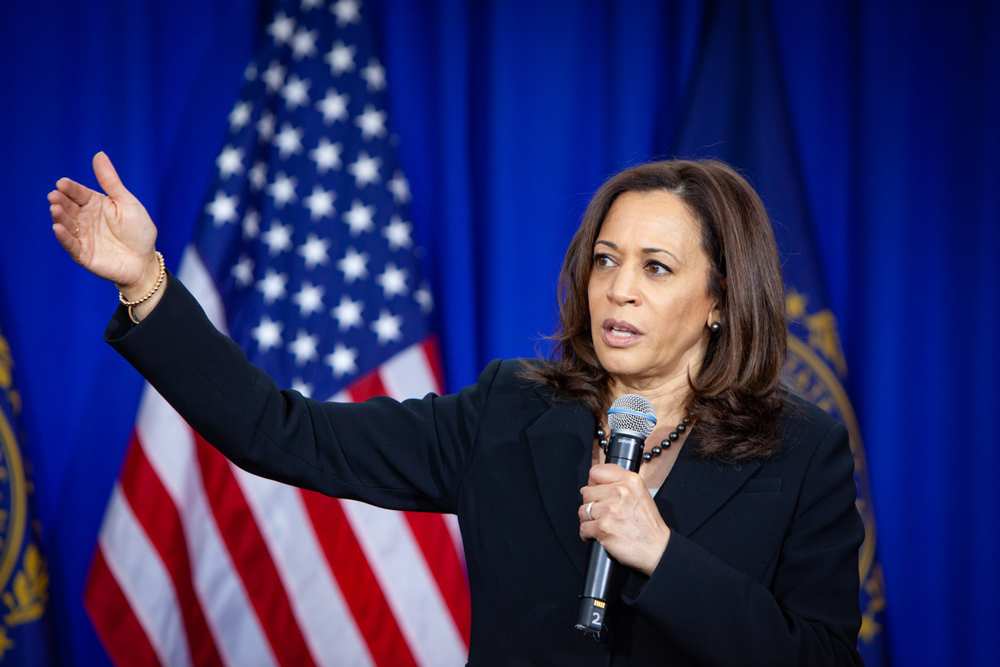
Sen. Kamala Harris
In early 2019, Harris reintroduced the Fairness for Farm Workers Act. The bill would require overtime pay for farm laborers and was co-sponsored by fellow presidential hopefuls and Senators Cory Booker, Amy Klobuchar and Elizabeth Warren.
When asked at a CNN town hall whether she would change USDA dietary guidelines to urge people against eating red meat, Harris said yes, and pledged a healthy food policy that would incentivize healthy eating. “We have to have a priority at the highest level of government around what we eat and healthy eating, because we have a problem in America,” she said. She also proposed a labeling system that would warn consumers about the products impact on environment and health.
Harris was also a co-sponsor of the Green New Deal.
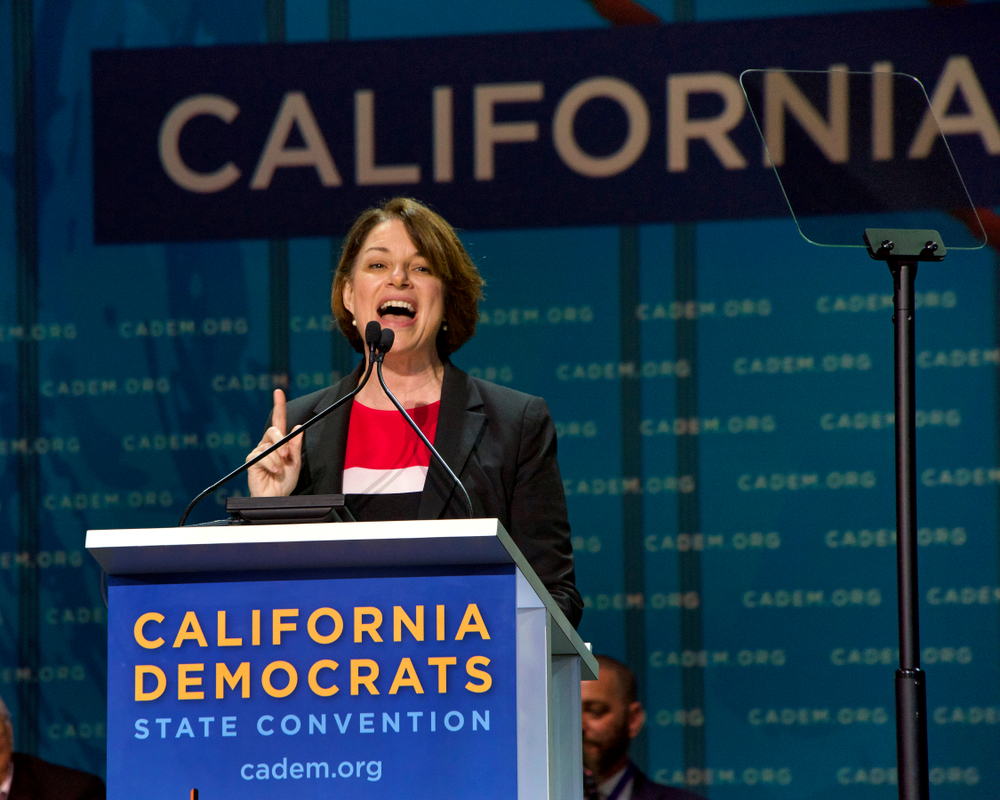
Sen. Amy Klobuchar
Klobuchar serves on the Agriculture Committee and has promised to expand farm support programs as part of a larger plan to create job growth in rural areas.
The Minnesota senator rolled out her plan in early August and pledged to make taxpayers cover a larger percentage of premiums for crop insurance and boost funding for programs that focus on eradicating livestock disease. She also promised to tie subsidies for farmers to their costs of production. Read more about her plan aiming to strengthen agricultural communities here.
When asked at a CNN town hall whether she would stand up to beef and dairy industry to fight climate change, she did not answer the question, and instead spoke about rejoining the Paris Agreement. President Donald Trump has promised to pull the United States out of the unbinding agreement.
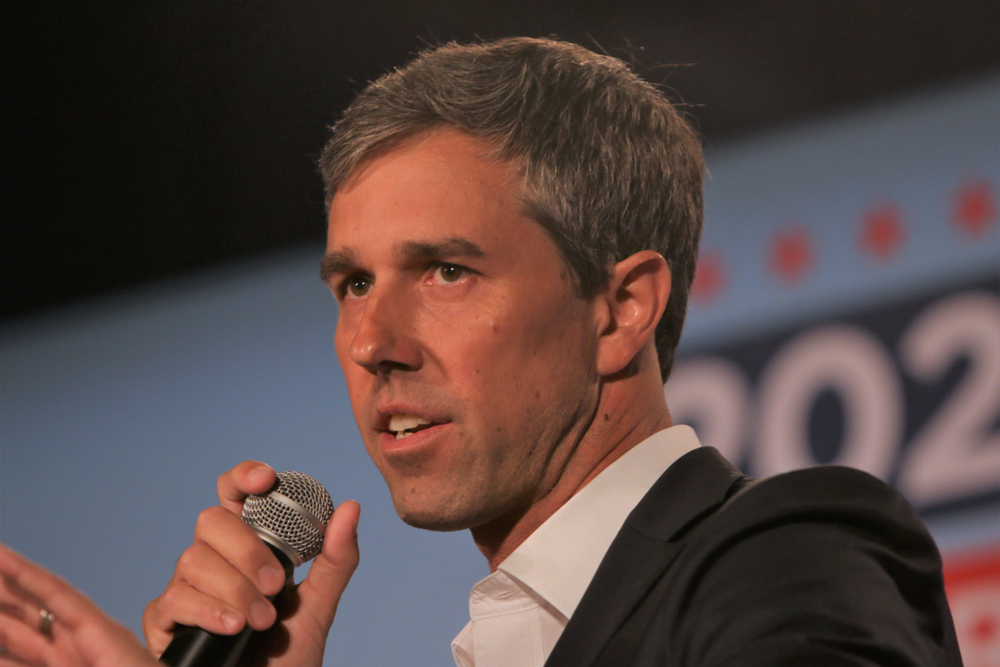
Former Rep. Beto O’Rourke
As part of his climate change plan, O’Rourke has said he would provide farmers and ranchers with “unprecedented access” to technologies to profit from reductions in greenhouse gas emissions. He has also proposed expanding crop insurance.
During a recent candidates debate, O’Rourke supported paying farmers for regenerative practices like planting cover crops.
When asked at a CNN town hall event about the impacts the beef industry’s environmental impacts, O’Rourke said carbon pricing would help mitigate the effects of global warming.
“I reject any notion that we have to radically or fundamentally change how we eat or what we eat, I think we just have to be more responsible in the way that we do it,” he said.
O’Rourke released a trade plan in late August, pledging to end Trump’s trade war with China. He said he would accomplish this by eliminating tariffs on Chinese products in exchange for China doing the same for its tariffs on American products such as soybeans and beef.
Read more about O’Rourke’s trade proposals here.
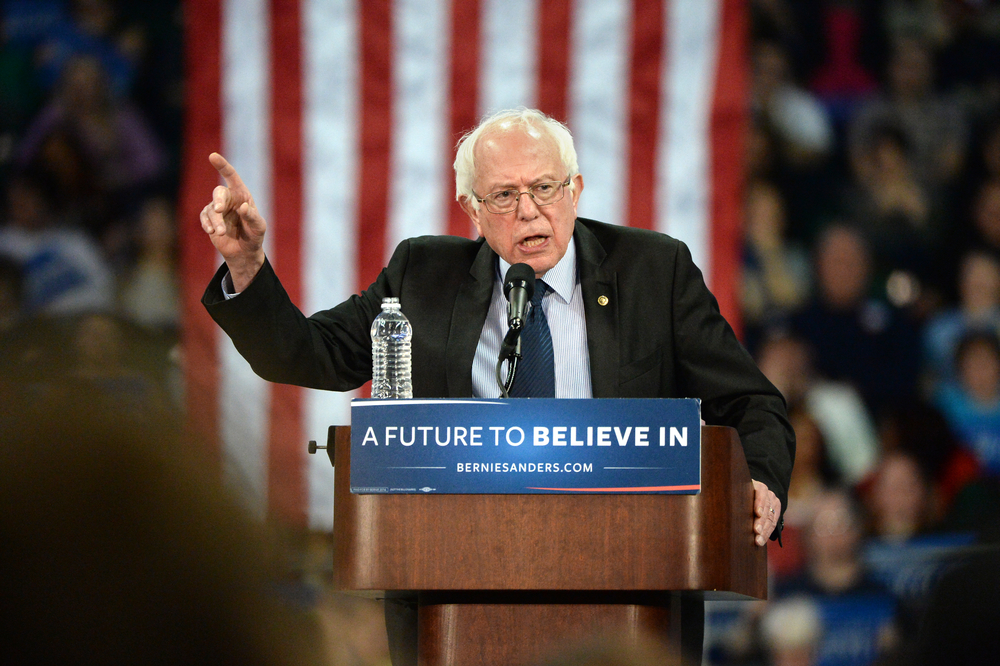
Sen. Bernie Sanders
In May, Sanders released a sweeping agriculture plan that would break up big agribusiness and divert more subsidies to small and mid-sized farms. He proposed enacting “Roosevelt-style trust-busting laws” to stop the monopolization of markets and a moratorium of future mergers.
Some of his other proposals include:
-Reestablishing and strengthening the Grain Inspectors, Packers and Stockyards Administration (GIPSA), the agency that oversees antitrust in the packing industry and has been gutted under the Trump administration.
-Ensuring farmers have the right to repair their own equipment
-Reforming patent law to protect farmers from patent lawsuits from seed corporations.
-Strengthening organic standards.
-Allowing meat slaughtered at a state-inspected facility to be sold across state lines.
-Classifying food supply security as a national security issue.
-Developing fair trade partnerships that do not drive down produce prices.
-Enforce country-of-origin-labeling to prevent companies from passing off imported meat as an American grown product.
-Enacting supply management programs.
-Re-establishing a national grain and feed reserve.
-Transitioning to a system that would provide farmers with a guaranteed living wage.
The independent senator from Vermont has also promised to end factory farming and was a co-sponsor of the Green New Deal.
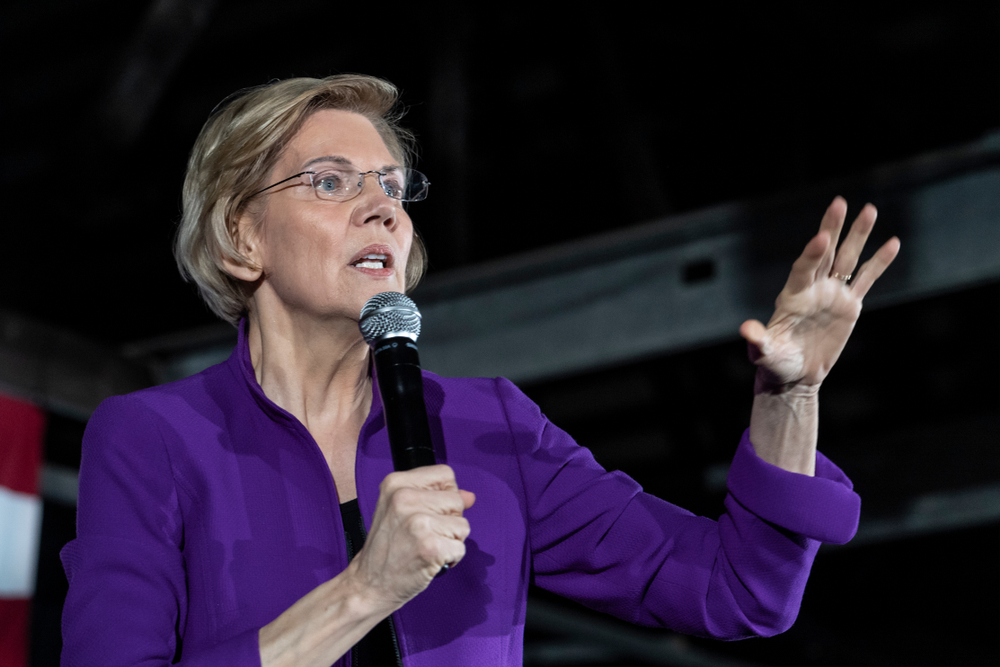
Sen. Elizabeth Warren
Warren released her own detailed plan in March, proposing to break up big agribusiness and to strengthen antitrust rules and enforcement. She has called for a new supply management system to replace the current subsidy system.
The Massachusetts senator has promised to increase payments for sustainable farming methods through the Conservation Stewardship Program to $15 billion a year from $1 billion.
Some of her other pledges include:
-Dedicating resources to develop innovations for decarbonizing the agricultural sector.
-Reinvesting in land grant universities
-Expanding the “Farm-to-School” program by “a hundredfold.”
-Increasing the funding for the USDA’s Local Agriculture Market Program to $500M a year over the next decade to fund food hubs and distribution centers.
-Establishing programs to assist heirs’ property owners to tackle the systematic dispossession of farm land in communities of color.
-Expanding access to credit and land for new and diverse farmers.
-Supporting a national right to repair law for farmers.
-Limiting foreign ownership of American farmland.
-Reforming country-of-origin labeling.
-Trade pacts will require imported food to meet domestic food safety standards.
Warren was also a co-sponsor of the Green New Deal.
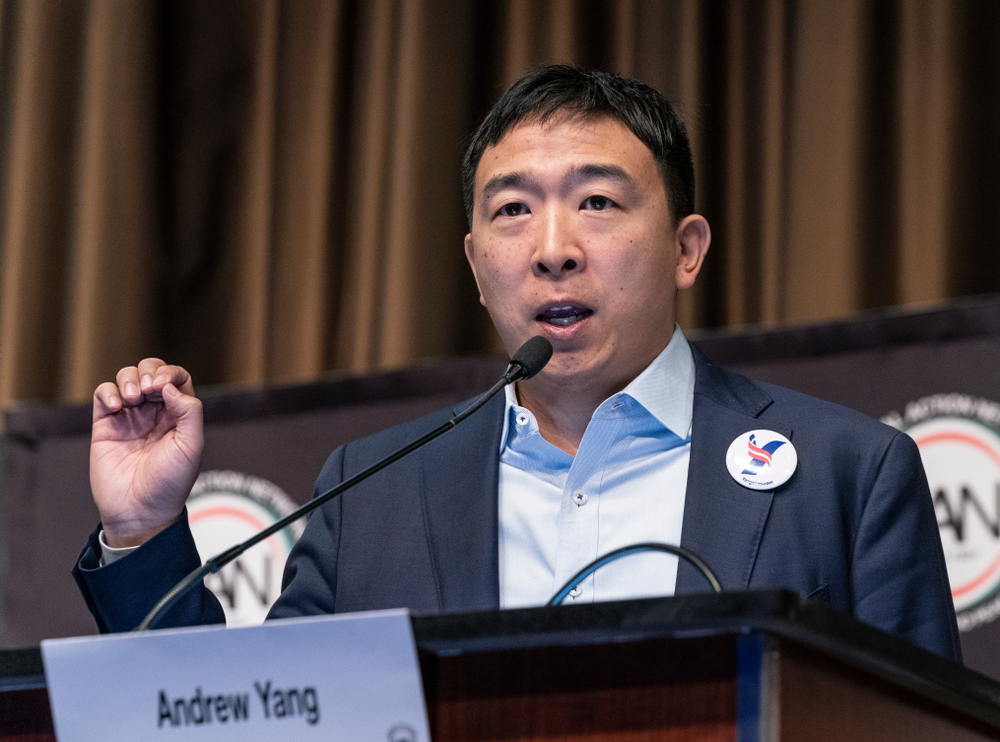
Andrew Yang
The centrepiece of Yang’s campaign is his universal basic income pledge. The proposal would see all adult Americans receive $1,000 a month in order to counteract the job losses from automation.
Yang has also proposed introducing a carbon fee and dividend which he says would allow businesses to find market-based solutions to lessen their carbon emissions. He said revenue from the fee would provide funding for alternative fuel research, upgrades to current energy systems and could be used to subsidize fuel costs for low-income Americans.
When asked at a CNN town hall how he was going to protect farming communities in the Midwest while tackling how food systems contribute to climate change, Yang said “We need to help farmers modernize their land use in terms of their environmental impact,” by offering them economic incentives to do so.
Follow us
This work is licensed under a Creative Commons Attribution-NoDerivatives 4.0 International License.
Want to republish a Modern Farmer story?
We are happy for Modern Farmer stories to be shared, and encourage you to republish our articles for your audience. When doing so, we ask that you follow these guidelines:
Please credit us and our writers
For the author byline, please use “Author Name, Modern Farmer.” At the top of our stories, if on the web, please include this text and link: “This story was originally published by Modern Farmer.”
Please make sure to include a link back to either our home page or the article URL.
At the bottom of the story, please include the following text:
“Modern Farmer is a nonprofit initiative dedicated to raising awareness and catalyzing action at the intersection of food, agriculture, and society. Read more at <link>Modern Farmer</link>.”
Use our widget
We’d like to be able to track our stories, so we ask that if you republish our content, you do so using our widget (located on the left hand side of the article). The HTML code has a built-in tracker that tells us the data and domain where the story was published, as well as view counts.
Check the image requirements
It’s your responsibility to confirm you're licensed to republish images in our articles. Some images, such as those from commercial providers, don't allow their images to be republished without permission or payment. Copyright terms are generally listed in the image caption and attribution. You are welcome to omit our images or substitute with your own. Charts and interactive graphics follow the same rules.
Don’t change too much. Or, ask us first.
Articles must be republished in their entirety. It’s okay to change references to time (“today” to “yesterday”) or location (“Iowa City, IA” to “here”). But please keep everything else the same.
If you feel strongly that a more material edit needs to be made, get in touch with us at [email protected]. We’re happy to discuss it with the original author, but we must have prior approval for changes before publication.
Special cases
Extracts. You may run the first few lines or paragraphs of the article and then say: “Read the full article at Modern Farmer” with a link back to the original article.
Quotes. You may quote authors provided you include a link back to the article URL.
Translations. These require writer approval. To inquire about translation of a Modern Farmer article, contact us at [email protected]
Signed consent / copyright release forms. These are not required, provided you are following these guidelines.
Print. Articles can be republished in print under these same rules, with the exception that you do not need to include the links.
Tag us
When sharing the story on social media, please tag us using the following: - Twitter (@ModFarm) - Facebook (@ModernFarmerMedia) - Instagram (@modfarm)
Use our content respectfully
Modern Farmer is a nonprofit and as such we share our content for free and in good faith in order to reach new audiences. Respectfully,
No selling ads against our stories. It’s okay to put our stories on pages with ads.
Don’t republish our material wholesale, or automatically; you need to select stories to be republished individually.
You have no rights to sell, license, syndicate, or otherwise represent yourself as the authorized owner of our material to any third parties. This means that you cannot actively publish or submit our work for syndication to third party platforms or apps like Apple News or Google News. We understand that publishers cannot fully control when certain third parties automatically summarize or crawl content from publishers’ own sites.
Keep in touch
We want to hear from you if you love Modern Farmer content, have a collaboration idea, or anything else to share. As a nonprofit outlet, we work in service of our community and are always open to comments, feedback, and ideas. Contact us at [email protected].by Alex Robinson, Modern Farmer
August 23, 2019
Modern Farmer Weekly
Solutions Hub
Innovations, ideas and inspiration. Actionable solutions for a resilient food system.
ExploreShare With Us
We want to hear from Modern Farmer readers who have thoughtful commentary, actionable solutions, or helpful ideas to share.
SubmitNecessary cookies are absolutely essential for the website to function properly. This category only includes cookies that ensures basic functionalities and security features of the website. These cookies do not store any personal information.
Any cookies that may not be particularly necessary for the website to function and are used specifically to collect user personal data via analytics, ads, other embedded contents are termed as non-necessary cookies.